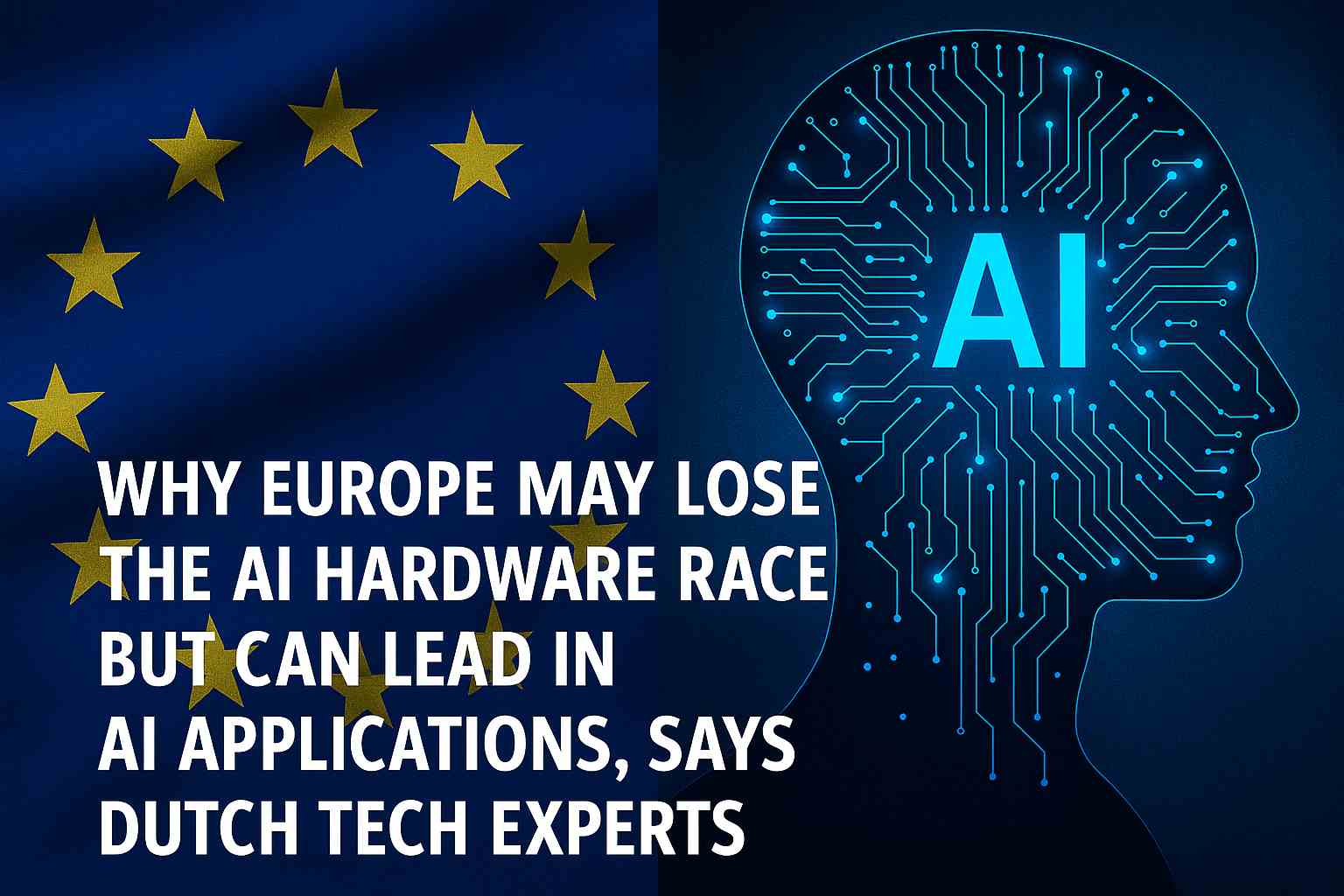Why Europe May Lose the AI Hardware Race but Can Lead in AI Applications, Says Dutch Tech Experts
Artificial intelligence continues to reshape global industries at a breakneck pace. However, recent insights from Dutch tech leaders suggest that while Europe is unlikely to dominate the AI hardware sector, the continent holds significant potential to become a powerhouse in AI applications. For businesses, policymakers, and innovators alike, understanding this nuanced landscape is key to capitalizing on Europe’s unique strengths and overcoming its challenges in the AI ecosystem.
In this article, we’ll explore why Europe might lag behind in manufacturing AI hardware, yet can carve out a leading position in the development of AI-driven software solutions and applications.
Why Isn’t Europe Leading in AI Hardware Manufacturing?
AI hardware encompasses specialized chips, processors, and infrastructure tailored to optimize machine learning models. Despite Europe’s engineering pedigree, a confluence of factors hinders its leadership in this segment:
Supply Chain Constraints and Capital Intensity
Asia and the US dominate chip production, supported by massive capital investments and an entrenched ecosystem of suppliers and manufacturers. European companies face challenges securing large-scale funding and scaling semiconductor fabrication plants, known as fabs, due to high costs and geopolitical complexities.
Fragmented Market and Regulatory Challenges
Europe’s fragmented regulatory environment and diverse market standards create hurdles for unified hardware development efforts. Unlike the US and China, where large tech conglomerates push innovation end-to-end, Europe’s landscape is more decentralized.
Limited Global Players
While Europe boasts strong semiconductor companies like ASML—a leader in photolithography machines critical for chip manufacturing—there is a clear gap in companies focusing specifically on cutting-edge AI hardware development such as AI accelerators and neuromorphic chips.
How Europe Can Dominate the AI Applications Sphere
Though Europe may struggle in hardware, experts are optimistic about its prospects in AI software and applications. Here’s why:
Strong Focus on Ethical AI and Regulation
European countries are leading in creating robust ethical frameworks around AI, fostering trust and acceptance among users and businesses. This emphasis positions the continent as fertile ground for AI applications focused on privacy, transparency, and fairness.
Expertise in Specialized Industries
Sectors like healthcare, automotive, agriculture, and finance in Europe are ripe for AI-driven innovation. Integrating AI into these established industries creates opportunities to develop tailored applications that solve real-world problems efficiently.
Collaborative Innovation Ecosystems
European research institutions, startups, and large enterprises engage in collaborative projects, supported by the EU’s funding initiatives aimed at accelerating AI adoption. These alliances accelerate the development of cutting-edge AI software solutions adapted to local and global markets.
What Role Does the Dutch Tech Scene Play in Europe’s AI Future?
The Netherlands, known for its vibrant tech ecosystem and innovation hubs, exemplifies how European countries can leverage strengths in AI applications:
– Tech Talent and Research: Dutch universities and research centers contribute to breakthrough AI algorithms, natural language processing tools, and machine learning models.
– Startup Culture: A rising number of AI-focused startups are building solutions for logistics, healthcare diagnostics, and smart city applications.
– Public-Private Partnerships: Coordinated efforts between government bodies and industry players help streamline AI adoption and create scalable businesses.
Dutch leaders argue that the future of AI in Europe lies in leveraging such agile and application-oriented ecosystems rather than attempting to compete directly with the giants of AI hardware manufacturing.
How Should Businesses and Policymakers Respond?
To maximize Europe’s potential in AI applications, a multi-pronged approach is essential:
– Invest in AI Talent and Education: Upskilling the workforce and promoting interdisciplinary research to fuel innovation.
– Enhance Funding and Scale-Ups: Providing substantial financing options for AI startups focused on applications, while facilitating access to global markets.
– Strengthen Ethical and Regulatory Leadership: Maintaining Europe’s competitive edge through standards that foster responsible AI deployment.
– Encourage Cross-border Collaborations: Breaking down silos between countries to build unified AI ecosystems and shared infrastructure.
These strategies can help ensure Europe not only participates in but shapes the future AI landscape.
—
Summary
While Europe may not lead the race in manufacturing AI hardware, the continent’s strengths lie in creating impactful, ethical, and user-centric AI applications. Dutch tech leaders’ insights highlight a strategic pivot — focusing on software innovation, ethical AI frameworks, and cross-sector collaboration to carve out a global leadership role. Whether you’re an entrepreneur, policymaker, or tech enthusiast, embracing this shift will be crucial to thriving in the evolving AI world.
Ready to dive deeper? See our recent guide on AI for actionable insights to leverage AI technologies now.
—
FAQ
Why is Europe not leading in AI hardware production?
Europe faces challenges such as high capital requirements, fragmented markets, and competition from established manufacturing hubs in Asia and the US, limiting its ability to lead in AI hardware.
What advantages does Europe have in AI applications?
Europe’s emphasis on ethical AI, strong industries like healthcare and automotive, collaborative ecosystems, and supportive regulations enable it to excel in developing innovative and responsible AI software solutions.
How can companies in Europe benefit from current AI trends?
By focusing on AI application development tailored to local market needs, investing in talent, and leveraging public-private partnerships, European companies can build scalable, impactful AI products that comply with stringent regulatory standards.
📢 Want more insights like this? Explore more trending topics.




